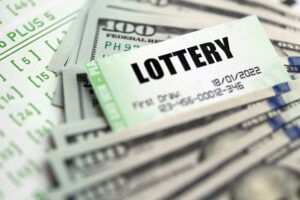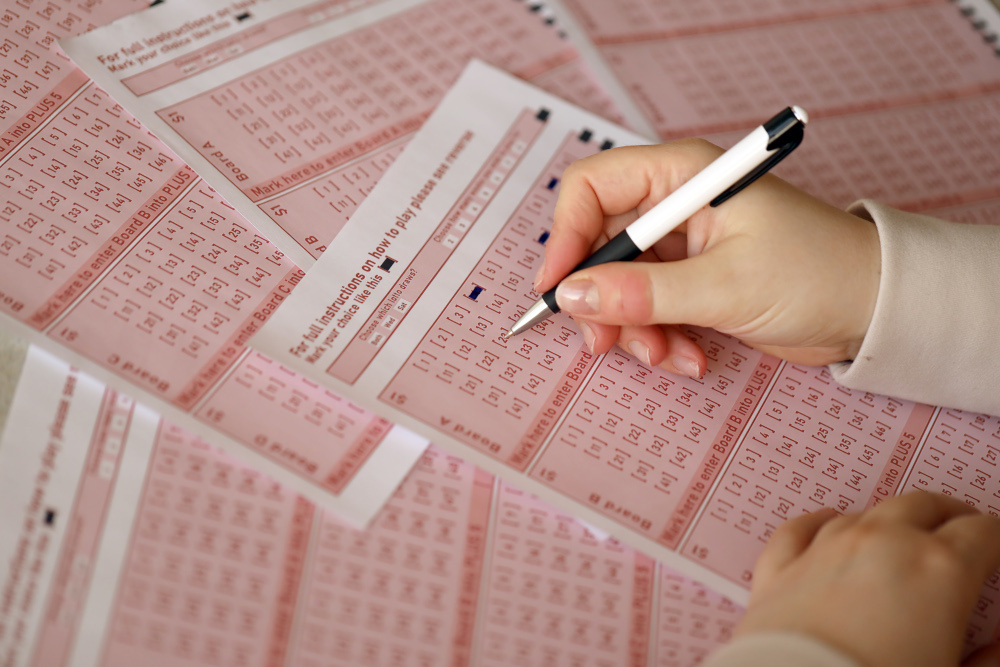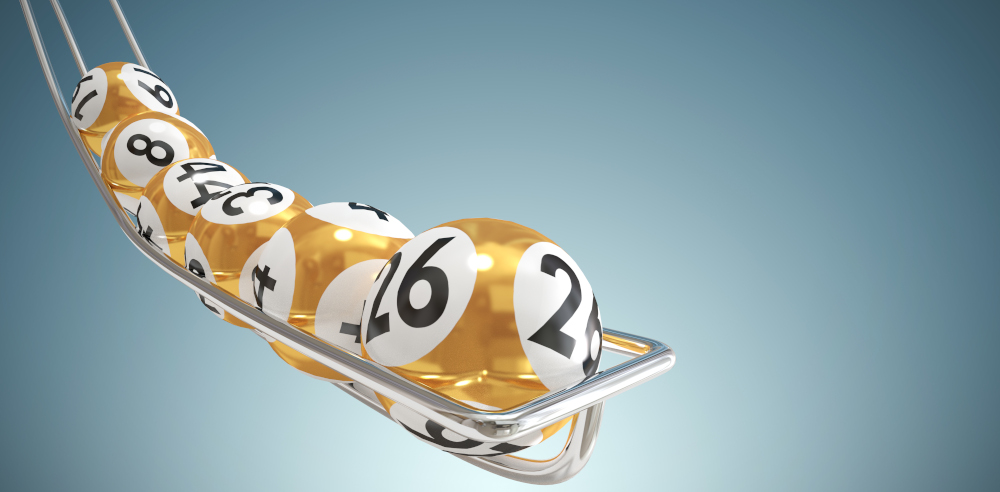Lotteries have captivated players worldwide, offering life-changing jackpots and the dream of instant wealth. The industry is massive, with global lottery sales exceeding $350 billion annually. Some of the largest lotteries, such as the US Powerball and EuroMillions, have set records with jackpots surpassing $2 billion and €240 million, respectively. South Africa’s lottery scene is significant in its own right, with the National Lottery Commission (NLC) reporting that the industry contributes billions of rands to the economy each year. The appeal of lotteries lies in their accessibility—anyone can enter with a small investment, and for many, the excitement of chasing the jackpot outweighs the long odds.
Each country structures its lottery games differently, affecting ticket prices, odds, and jackpot sizes. In South Africa, the SA Lotto and PowerBall dominate the market, with ticket prices starting at R5, making them highly affordable. However, the maximum SA PowerBall jackpot—around R232 million (US$12 million)—pales in comparison to the US Powerball, which regularly surpasses $500 million due to its massive player base and jackpot rollovers. In Europe, EuroMillions pools funds from multiple countries, creating prize pools far beyond what single-country lotteries can achieve. This collective approach allows EuroMillions to regularly offer jackpots exceeding €100 million, a scale that SA Lotto cannot match due to its smaller market size.
Cape Town, as a hub for both tourism and commerce, has a strong lottery-playing culture. Local retailers and online platforms process thousands of ticket sales daily, with online betting platforms like Lottostar and Betway making international lotteries accessible to South Africans. The rise of digital lottery participation has blurred geographical boundaries, allowing Cape Town residents to bet on international games such as US Mega Millions and UK Lotto, sometimes winning payouts despite not being eligible for official jackpots. While the odds remain steep, these games provide South African players access to some of the world’s largest prize pools, redefining how the lottery industry operates in a globally connected economy.
SA Lotto: How It Works and Its Biggest Jackpots
The South African National Lottery has been a household name since its launch in 2000, offering millions of players a shot at life-changing wealth. Operated by Ithuba Holdings, the game follows a simple format: players pick six numbers from 1 to 52, with draws held every Wednesday and Saturday. A standard ticket costs R5, making it one of the most affordable lottery options compared to global counterparts like the US Powerball or EuroMillions, where tickets can cost more than R50 per play. Despite its affordability, SA Lotto has produced hundreds of millionaires, with its jackpot often rolling over multiple times before a winner claims the prize.
While SA Lotto jackpots have reached impressive sums, they remain modest compared to international lotteries. The largest ever SA Lotto jackpot was R110 million, won in 2018 by a single ticket holder—a life-changing sum, but significantly smaller than the $2 billion US Powerball record or the €240 million EuroMillions jackpot. South African PowerBall, a separate game with higher stakes, has awarded even bigger prizes, with the record-breaking R232 million PowerBall jackpot won in 2019. These figures highlight the differences in prize pools, as lotteries in larger economies benefit from higher ticket sales and massive player participation.
Some of the biggest SA Lotto winners have shared inspiring and unexpected stories. A R50 million jackpot winner from Cape Town chose to remain anonymous but reportedly continued working, while another winner from Gauteng used their fortune to build community projects. However, not all winners handle their wealth wisely—some have lost everything due to poor financial decisions. The unpredictability of sudden wealth makes the lottery both a dream and a potential cautionary tale, reinforcing the importance of financial planning after a big win.
Powerball: America’s Biggest Jackpot Game
Powerball is the largest and most widely recognized lottery in the United States, offering jackpots that regularly climb into the hundreds of millions. A standard ticket costs $2 (about R38), with players selecting five numbers from 1 to 69 and a Powerball from 1 to 26. The odds of winning the jackpot stand at an astronomical 1 in 292 million, but the massive prize pools make the risk enticing. Draws take place every Monday, Wednesday, and Saturday, with rollovers increasing the jackpot until someone claims it. Unlike fixed-prize lotteries, Powerball’s grand prize is based on ticket sales, allowing jackpots to grow exponentially.
Powerball has shattered global lottery records, with the biggest jackpot reaching $2.04 billion (R38 billion) in 2022. Multi-state participation fuels these enormous payouts, as ticket sales across 45 states, Washington D.C., Puerto Rico, and the U.S. Virgin Islands contribute to the prize pool. The largest single-ticket win was $1.58 billion in 2023, highlighting the life-changing potential of this game. Secondary prize tiers also offer substantial rewards, with matching five numbers (without the Powerball) awarding $1 million, and the Power Play multiplier increasing non-jackpot winnings by up to five times.
Compared to SA PowerBall, the U.S. version offers significantly higher jackpots but at the cost of steeper odds. South Africa’s PowerBall uses a 5/50 + 1/20 format, creating a 1 in 42 million chance of hitting the jackpot—far better odds than its American counterpart. SA PowerBall has also seen record payouts, such as the R232 million ($12 million) win in 2019, but the prize pools remain modest due to a smaller player base. While both games share the same name, the U.S. Powerball’s multi-state structure and unlimited rollovers make it the ultimate jackpot lottery, attracting millions of hopefuls worldwide.
EuroMillions: Europe’s Multi-Nation Jackpot
EuroMillions stands out from other lotteries by combining ticket sales from nine participating countries, including the UK, France, Spain, and Germany. This pooled structure allows the game to generate some of the largest jackpots in the world, often surpassing €100 million (R2 billion). Players select five numbers from 1 to 50 and two “Lucky Stars” from 1 to 12, with draws held twice a week on Tuesdays and Fridays. The odds of winning the jackpot are 1 in 139 million, making it slightly more favorable than US Powerball but still an extreme long shot.
Taxation on EuroMillions winnings varies by country. In the UK and France, winnings are tax-free, allowing players to keep the full amount. However, in countries like Spain and Portugal, a portion of the prize is deducted for taxes, with rates reaching up to 20% on large wins. This inconsistency creates a unique dynamic, where winners in some countries walk away with the full prize while others must account for deductions. Despite this, the appeal of EuroMillions remains strong, especially since the jackpot cap of €240 million (R4.9 billion) ensures life-changing payouts even if no one claims the top prize immediately.
EuroMillions has produced some of the biggest individual winners in lottery history. A UK player won £195 million (R4.5 billion) in 2022, breaking the record for the country’s largest-ever lottery payout. While some winners choose to remain anonymous, others have gone public, using their winnings for philanthropy, luxury lifestyles, or unexpected ventures. The ability to participate across multiple nations ensures EuroMillions remains one of the most competitive and widely played lotteries, drawing millions of hopefuls across Europe and beyond.
Mega Millions: The Other US Lottery Giant
Mega Millions is one of the most lucrative lottery games in the United States, often rivaling Powerball in jackpot size. While both games operate on a similar premise, Mega Millions requires players to select five numbers from 1 to 70 and a Mega Ball from 1 to 25. The jackpot odds are 1 in 302 million, making it slightly harder to win than Powerball. Ticket prices remain the same at $2 (R38) per play, with an option to add a Megaplier, which increases non-jackpot prizes. Draws take place every Tuesday and Friday, giving players two chances a week to hit massive payouts.
Mega Millions has produced some of the largest jackpots in lottery history. The biggest prize ever recorded was $1.537 billion (R29 billion) in 2018, won by a single ticket in South Carolina. Another historic jackpot of $1.35 billion (R26 billion) was claimed in 2023, continuing the trend of billion-dollar payouts. Unlike Powerball, which splits most of its record jackpots among multiple winners, Mega Millions has had more single-ticket billionaires. Secondary prizes are also substantial, with matching five numbers (without the Mega Ball) awarding $1 million, a sum that can multiply up to $5 million with the Megaplier.
The key to Mega Millions’ record-breaking jackpots lies in its unlimited rollovers. If no one wins the top prize, it continues growing, often accumulating for months before being claimed. This feature has fueled media frenzy and player participation, especially when jackpots surpass $500 million. Unlike many national lotteries with capped payouts, Mega Millions allows the prize pool to reach unprecedented heights, creating some of the most talked-about lottery moments in history.
Other Notable Lotteries Around the World
The UK National Lottery is one of the most influential in Europe, not only for its jackpots but also for its contributions to public projects. Since its launch in 1994, it has funded over £47 billion (R1.1 trillion) in grants supporting sports, arts, and heritage programs. Players choose six numbers from 1 to 59, with draws held every Wednesday and Saturday. While jackpots rarely reach the heights of Powerball or EuroMillions, secondary prizes and tax-free winnings make it an attractive option for UK players. Its funding model ensures that a portion of every ticket sold contributes to national development.
Spain’s El Gordo de Navidad is unlike any other lottery in the world, offering the largest total prize pool rather than a single massive jackpot. Held annually on December 22, this Christmas lottery distributes over €2.5 billion (R50 billion) in prizes, with thousands of winners instead of just one. Tickets, known as “décimos”, cost €20 (R400) and are often shared among families, offices, and entire communities. The top prize, El Gordo (“The Fat One”), usually pays out around €4 million (R80 million), but the widespread distribution of winnings makes it a highly anticipated national event.
Australia’s Oz Lotto offers some of the best odds among major lotteries while still delivering substantial payouts. Launched in 1994, it requires players to select seven numbers from 1 to 47, increasing the chances of winning compared to lotteries with five-number selections. The jackpot starts at AU$2 million (R24 million) and can roll over to exceed AU$100 million (R1.2 billion). Unlike many international lotteries, Oz Lotto prizes are tax-free, and Australia’s gambling regulations ensure transparency in payouts. Its focus on more frequent winners rather than extreme jackpots makes it a favorite among players seeking better odds without sacrificing big payouts.
What Sets These Lotteries Apart?
Ticket pricing, odds, and jackpot sizes vary widely across the world’s most popular lotteries. SA Lotto and the UK National Lottery offer some of the lowest entry costs, around R5 (£2) per ticket, while Powerball and Mega Millions charge $2 (R38), with additional costs for prize multipliers. The odds also differ significantly—Powerball (1 in 292 million) and Mega Millions (1 in 302 million) have the lowest chances of winning, while games like Oz Lotto (1 in 45 million) and SA Lotto (1 in 20 million) provide slightly better winning probabilities. The ability for jackpots to roll over without limits, as seen in US Powerball and Mega Millions, is what allows them to reach multi-billion-rand payouts.
Tax laws play a crucial role in how much winners actually take home. In South Africa, the UK, and Australia, lottery winnings are tax-free, meaning winners keep every cent of their prize. In contrast, the US taxes lottery winnings up to 37%, with additional state taxes depending on where the ticket was purchased. European lotteries like EuroMillions apply different rules based on the winner’s country—France and the UK allow tax-free winnings, while Spain and Portugal impose tax deductions exceeding 20% on large payouts. These variations influence player participation, as tax-free lotteries provide clearer and often more attractive final payouts.
Some lotteries create bigger winners simply by how their prize structures are designed. US Powerball and Mega Millions generate enormous jackpots due to nationwide ticket sales and unrestricted rollovers. EuroMillions benefits from multi-country participation, ensuring consistently high prize pools. Meanwhile, El Gordo de Navidad distributes billions across thousands of winners, rather than concentrating the prize on a single jackpot. Whether a lottery creates one billionaire or thousands of millionaires depends on its payout model, making each game unique in how it rewards players.
Lotteries remain one of the most accessible forms of gambling, offering players around the world a chance at life-changing wealth with a minimal upfront cost. The industry continues to grow as jackpots reach record-breaking sums, fueled by larger player pools and evolving digital platforms. Whether it’s national draws, multi-country jackpots, or unique payout structures, the global lottery market thrives on the excitement of massive prizes and the dream of financial freedom.
For South African players, the SA Lotto provides a familiar and affordable entry point, but it operates on a much smaller scale than international lotteries like Powerball, EuroMillions, and Mega Millions. While global lotteries offer significantly larger jackpots, they come with steeper odds, higher ticket prices, and, in some cases, tax deductions. South Africans now have access to these games through online platforms, allowing them to weigh the benefits of better odds locally versus bigger payouts abroad.
Ultimately, winning any lottery is purely a matter of chance. No strategy can change the odds, but understanding jackpot structures, prize distribution, and tax implications can help players make more informed choices. Whether aiming for a billion-dollar prize or a more attainable local jackpot, lottery participation is about balancing expectation with reality, enjoying the thrill of the draw, and knowing that, at the end of the day, luck is the only factor that truly determines the outcome.





